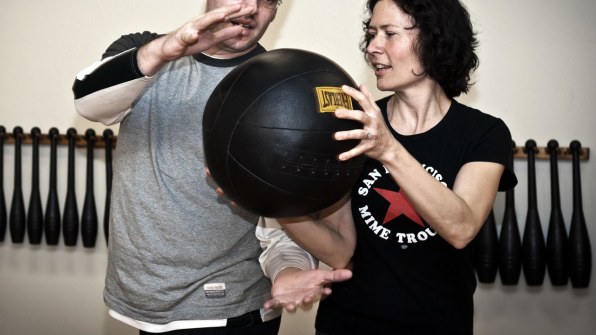There are many things that happen every day that can cause you to feel ill, uncomfortable, upset, anxious, or irritated. You will want to do things to help yourself feel better as quickly as possible, without doing anything that has negative consequences, for example, drinking, committing crimes, hurting yourself, risking your life, or eating lots of junk food.
Read through the following list. Check off the ideas that appeal to you and give each of them a try when you need to help yourself feel better. Make a list of the ones you find to be most useful, along with those you have successfully used in the past, and hang the list in a prominent place—like on your refrigerator door-as a reminder at times when you need to comfort yourself. Use these techniques whenever you are having a hard time or as a special treat to yourself.
Do something fun or creative, something you really enjoy, like crafts, needlework, painting, drawing, woodworking, making a sculpture, reading fiction, comics, mystery novels, or inspirational writings, doing crossword or jigsaw puzzles, playing a game, taking some photographs, going fishing, going to a movie or other community event, or gardening.
Get some exercise. Exercise is a great way to help yourself feel better while improving your overall stamina and health. The right exercise can even be fun.
Write something. Writing can help you feel better. You can keep lists, record dreams, respond to questions, and explore your feelings. All ways are correct. Don’t worry about how well you write. It’s not important. It is only for you. Writing about the trauma or traumatic events also helps a lot. It allows you to safely process the emotions you are experiencing. It tells your mind that you are taking care of the situation and helps to relieve the difficult symptoms you may be experiencing. Keep your writings in a safe place where others cannot read them. Share them only with people you feel comfortable with. You may even want to write a letter to the person or people who have treated you badly, telling them how it affected you, and not send the letter.
Use your spiritual resources. Spiritual resources and making use of these resources varies from person to person. For some people it means praying, going to church, or reaching out to a member of the clergy. For others it is meditating or reading affirmations and other kinds of inspirational materials. It may include rituals and ceremonies—whatever feels right to you. Spiritual work does not necessarily occur within the bounds of an organized religion. Remember, you can be spiritual without being religious.
Do something routine. When you don’t feel well, it helps to do something “normal”—the kind of thing you do every day or often, things that are part of your routine like taking a shower, washing your hair, making yourself a sandwich, calling a friend or family member, making your bed, walking the dog, or getting gas in the car.
Wear something that makes you feel good. Everybody has certain clothes or jewelry that they enjoy wearing. These are the things to wear when you need to comfort yourself.
Get some little things done. It always helps you feel better if you accomplish something, even if it is a very small thing. Think of some easy things to do that don’t take much time. Then do them. Here are some ideas: clean out one drawer, put five pictures in a photo album, dust a book case, read a page in a favorite book, do a load of laundry, cook yourself something healthful, send someone a card.
Learn something new. Think about a topic that you are interested in but have never explored. Find some information on it in the library. Check it out on the Internet. Go to a class. Look at something in a new way. Read a favorite saying, poem, or piece of scripture, and see if you can find new meaning in it.
Do a reality check. Checking in on what is really going on rather than responding to your initial “gut reaction” can be very helpful. For instance, if you come in the house and loud music is playing, it may trigger the thinking that someone is playing the music just to annoy you. The initial reaction is to get really angry with them. That would make both of you feel awful. A reality check gives the person playing the loud music a chance to look at what is really going on. Perhaps the person playing the music thought you wouldn’t be in until later and took advantage of the opportunity to play loud music. If you would call upstairs and ask him to turn down the music so you could rest, he probably would say, “Sure!” It helps if you can stop yourself from jumping to conclusions before you check the facts.
Be present in the moment. This is often referred to as mindfulness. Many of us spend so much time focusing on the future or thinking about the past that we miss out on fully experiencing what is going on in the present. Making a conscious effort to focus your attention on what you are doing right now and what is happening around you can help you feel better. Look around at nature. Feel the weather. Look at the sky when it is filled with stars.
Stare at something pretty or something that has special meaning for you. Stop what you are doing and take a long, close look at a flower, a leaf, a plant, the sky, a work of art, a souvenir from an adventure, a picture of a loved one, or a picture of yourself. Notice how much better you feel after doing this.
Play with children in your family or with a pet. Romping in the grass with a dog, petting a kitten, reading a story to a child, rocking a baby, and similar activities have a calming effect which translates into feeling better.
Do a relaxation exercise. There are many good books available that describe relaxation exercises. Try them to discover which ones you prefer. Practice them daily. Use them whenever you need to help yourself feel better. Relaxation tapes which feature relaxing music or nature sounds are available. Just listening for 10 minutes can help you feel better.
Take a warm bath. This may sound simplistic, but it helps. If you are lucky enough to have access to a Jacuzzi or hot tub, it’s even better. Warm water is relaxing and healing.
Expose yourself to something that smells good to you. Many people have discovered fragrances that help them feel good. Sometimes a bouquet of fragrant flowers or the smell of fresh baked bread will help you feel better.
Listen to music. Pay attention to your sense of hearing by pampering yourself with delightful music you really enjoy. Libraries often have records and tapes available for loan. If you enjoy music, make it an essential part of every day.
Make music. Making music is also a good way to help yourself feel better. Drums and other kinds of musical instruments are popular ways of relieving tension and increasing well-being. Perhaps you have an instrument that you enjoy playing, like a harmonica, kazoo, penny whistle, or guitar.
Sing. Singing helps. It fills your lungs with fresh air and makes you feel better. Sing to yourself. Sing at the top of your lungs. Sing when you are driving your car. Sing when you are in the shower. Sing for the fun of it. Sing along with favorite records, tapes, compact discs, or the radio. Sing the favorite songs you remember from your childhood.
Perhaps you can think of some other things you could do that would help you feel better.








































